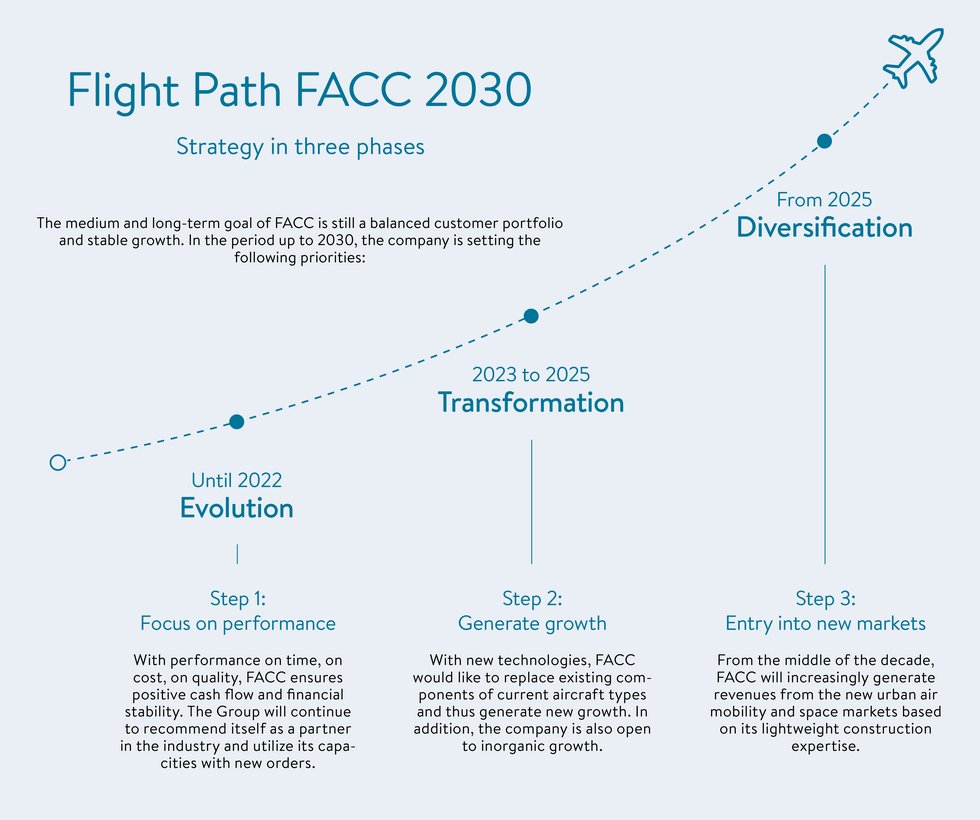Over the past three decades, FACC has developed from a start-up into one of the world’s most important players in the aerospace industry. With its new “FACC 2030” strategy, the Group recently outlined how it intends to position itself for the future. After all, the aerospace market is constantly evolving, and new market segments and opportunities are emerging.
“Evolution has been firmly anchored in our DNA since our foundation,” reflects the self-image of FACC. This not only refers to the Group’s numerous lightweight solutions developed in-house, which are making air travel increasingly efficient, comfortable and environmentally friendly. It also captures the consistent further development of the company, which has characterized FACC from the very beginning and continues to do so – a capability which is becoming ever more important in a rapidly changing world. Climate change, digitalization and resource-efficient mobility: FACC will play an even stronger role in all of these areas in the future – with a clear commitment to remaining true to aerospace as its core business. However, the Group is also striving for long-term growth in the areas of urban air mobility and space, and will establish a significant market position based on its lightweight construction expertise to in these segments.
With this strategy, FACC is also reacting to the changes on the horizon for the aircraft industry in this decade. Air traffic must become more efficient and environmentally sound, and the goals of the aviation industry are ambitious: zero-emission air travel has to become possible by 2050, thereby halving its share of global CO2 emissions from currently around 2.7 percent despite a fourfold increase in air travel volumes. Furthermore, drone technologies are exploiting the airspace directly above the ground, and space travel is becoming increasingly privatized with annual revenues expected to reach 1,000 billion by the end of the decade. In all three areas, lightweight construction is a key technology – and a perfect foundation for sustainable growth at FACC.

Strategy in three phases
The strategy will be implemented in three phases: In the first phase, ending in 2023, the drop in revenues resulting from COVID-19 is to be compensated for by gaining new market shares in FACC’s core segment. This will be supported not least by the company’s best-in-class performance. In the second phase, running from 2023 to 2025, the focus will be on gradually improving existing aircraft fleets – with components that are produced more cheaply, quickly and efficiently and which contribute to reducing CO2 and noise emissions. Finally, in the third phase, starting in 2025, FACC aims to bring about disruptive changes to new products of its core segment by means of entirely novel technologies, and tap into uncharted markets such as UAM or space.